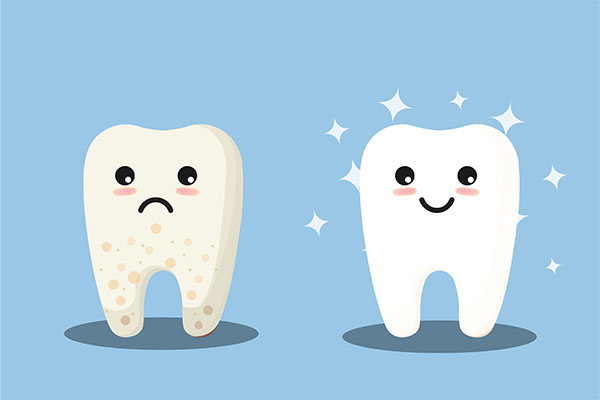A General Dentist Discusses Cavity Treatment

Your experienced general dentist can repair your cavities. Assessing your teeth will come first. Then, the dentist will discuss the treatment options with you. Knowing which option can help you the most can prepare you for the visit. Here are the details about the different cavity treatments that your general dentist can discuss with you.
Dental crowns
The chewing surfaces of the back teeth are prone to decay. Food particles and bacteria tend to get stuck in the grooves and pits of these surfaces. A general dentist will inspect the chewing surfaces of the back teeth and treat the decayed parts. Then, covering the teeth with dental crowns will follow. This form of cavity treatment can stop the progress of decay and protect the teeth from future damage.
Dental fillings
The general dentist can provide this quick cavity treatment. It takes one dental visit to fill the cavities. Small cavities will not need local anesthesia. The dentist will drill out the decayed parts and then clean the area.
Filling the cavities will follow. The general dentist will apply and mold the filling. Ultraviolet light will harden the filling. This treatment will prevent the decay from worsening and even protect the tooth from future decay or damage. Below are the common types of filling:
- Silver amalgam fillings contain tiny traces of mercury, tin, silver, and copper. This is the most affordable type of filling. It also takes very little time to apply it and fix it in place. Decades ago, amalgam was the most affordable choice for treating cavities. Dentists often applied them on the back teeth since these fillings have a visible color. These days, a general dentist will not suggest it anymore because of the presence of mercury.
- Composite resin fillings are made of tiny glass and plastic particles. The material is tooth-colored. The general dentist will match the color of the fillings with the color of the patient’s natural teeth. The duration of the application will be longer than that of a silver filling but faster than that of a gold filling.
- Gold fillings are durable. But because of their color, the general dentist always applies these fillings on the back teeth.
Root canal
Dental decay can penetrate the enamel and reach into the pulp that contains nerves and blood vessels. The pain will be severe at this point. The general dentist can stop the pain through root canal therapy. The process will start by giving the patient a local anesthetic. The dentist can also provide a proper form of sedation if the patient needs it.
Creating an opening into the tooth will follow. Taking out the damaged pulp will be the next step. The general dentist will clean, disinfect, and dry the pulp chamber. Filling the pulp chamber with gutta-percha will seal it and prevent bacteria from entering the tooth. The dentist will place a dental crown over the treated tooth. This will keep the tooth together and shield it against future decay or trauma.
Dental extraction
The general dentist will always aim to save one’s teeth. Dental decay can progress and reach the pulp cavity and into the dental root. When this happens, the dentist must remove the tooth. This is the last resort when it comes to treating cavities. Dental extraction aims to prevent the infection from spreading to the neighboring teeth or jawbone.
Dental impaction is a condition in which the tooth cannot erupt from the gum tissue. This makes the tooth prone to infection. The impacted tooth also grows and pushes against the neighboring teeth. The pressure can cause complications, such as severe pain and misalignment. The procedure may involve cutting the tooth into many pieces before taking them out one by one.
Dental filling aftercare
The general dentist may also discuss the proper ways of caring for filled teeth. The treatment will not have the same strength as before they were filled. That is why the treated teeth must receive proper care after getting the filling. Here are proper ways to care for a tooth after a cavity treatment:
- Floss and brush after the procedure. This is necessary even if the tooth is still sore. Be gentle in doing so. Use a soft-bristled toothbrush. That way, brushing can be gentle yet effective.
- Avoid touching the tooth. This will help the tooth heal well.
- Rinse the mouth after the treatment. Use an alcohol-free mouthwash or salt water.
- Refrain from eating sticky and hard foods. These foods may cause more pain. Soft foods are ideal until the tooth heals.
- Taking anti-inflammatory medications can help reduce discomfort and swelling after the treatment.
Your general dentist can help prepare you for your coming cavity treatment
Regular dental checks can prevent the development of cavities. These appointments can give the dentist a chance to provide cavity-preventive treatments, such as dental sealants. They can also treat cavities in their early stages. But teeth can develop severe damage if the cavities do not receive proper treatment. Working with your general dentist can spot the cavities and treat them without delay.
Request an appointment here: https://www.johnscreekteeth.com or call Johns Creek Dentistry at (770) 623-1427 for an appointment in our Johns Creek office.
Check out what others are saying about our dental services on Yelp: General Dentist in Johns Creek, GA.
Recent Posts
Visiting the dentist can be an anxiety-inducing event for many people. The biggest reason for this is that general dentistry appointments are often associated with painful procedures and a perceived loss of control as you lay back and let the dentist and dental assistant perform their duties. It might also be possible that you are…
A general dentist can relieve a toothache after a proper assessment. This type of dental problem is often accompanied by swelling. It may even occur with a migraine, fever, or earache. Tooth pain needs immediate treatment. Here are the details on what a general dentist can do for a toothache.Each toothache is different. That is…
Our general dentist can help reduce the effects of teeth grinding, also known as bruxism. Most people who grind their teeth tend to be unaware of their habit because it mainly occurs during sleep. Grinding your teeth occasionally due to being anxious or stressed out typically does not cause noticeable damage to teeth, but doing…
Have you ever suffered from an injury that left your teeth in pain? How do you know if you have an injured tooth? How can it be fixed? An injured tooth doesn’t have to be the end of the world, even though there are some instances where it can be fatal. Keep your teeth healthy…


